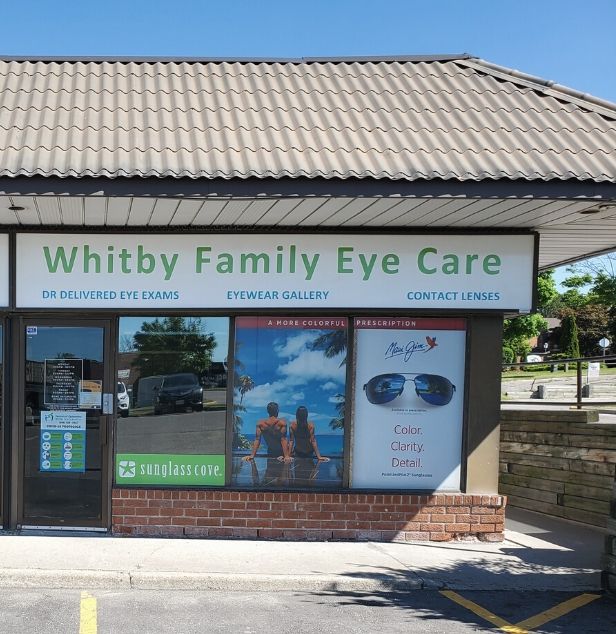There are many traits that your parents may have passed down to you, such as their brown hair and double-jointed fingers or their knack for learning a musical instrument, but could you also inherit their eye diseases?
While there are many eye diseases and many different forms an eye disease can take, there are hereditary eye diseases, including glaucoma.
Glaucoma is a disease that harms the optic nerve, potentially leading to loss of vision. The majority of the time, the damage is caused by an increase in pressure inside the eye. Because the visual loss associated with glaucoma is typically so gradual, people are often unaware of symptoms until they have lost a majority of their vision.
The best method of prevention for glaucoma, even if it is hereditary, is to book regular eye exams and create a treatment plan with your eye doctor.
Is There More Than 1 Type of Glaucoma?
Anyone can develop glaucoma, as there are multiple types of eye disease with a variety of possible causes.
Primary Open-Angle Glaucoma
The most prevalent kind of glaucoma, accounting for nearly 90% of all cases, is primary open-angle glaucoma. It usually occurs subtly and over time, with no early warning signs.
Primary open-angle glaucoma is characterized by increased pressure inside the eye. The increased pressure is believed to cause physical strain on the back of the eye, resulting in optic nerve injury. Primary open-angle glaucoma is hereditary, making your risk of developing it higher if a primary family member has been diagnosed.
Angle-Closure Glaucoma
Angle-closure glaucoma is a rare but dangerous illness that can manifest immediately or persistently by progressing gradually. When the drainage system inside the eye becomes obstructed, angle-closure glaucoma develops. As a result, the fluid in the eye accumulates, eye pressure rises, and the optic nerve is harmed. Angle-closure glaucoma often causes symptoms like headaches, nausea, vomiting, eye redness, and pain. It is a medical emergency since eyesight loss could occur in just 1 day.
Secondary Glaucoma
After an eye surgery, injury, infection, tumour, or other condition that raises eye pressure, secondary glaucoma is a possible result. Additionally, some health issues, drugs, and anomalies of the eyes could cause it.
Normal-Tension Glaucoma
When eye pressure remains within the “normal” range, yet the optic nerve is still harmed, it is called normal-tension glaucoma. Although the exact cause of this disease is unknown, it is believed to be caused by inadequate vascular circulation of blood through tissues, which harms the optic nerve.
What Are the Symptoms of Glaucoma?
Glaucoma typically has no initial symptoms. Because of this, just half of glaucoma sufferers are aware of their condition.
Some may gradually lose eyesight over time, usually beginning with peripheral vision, notably the area of your vision that is nearest to your nose. Many people are initially unaware that their vision is altering since it happens so gradually.
However, when the illness worsens, you may notice that your peripheral vision has diminished. Glaucoma can ultimately result in blindness if not treated.
A routine eye exam can identify glaucoma in its early stages. Early diagnosis and treatment are essential for controlling the progression of vision loss.
How to Detect Glaucoma
A routine eye exam is frequently the only approach to identify glaucoma in the absence of obvious symptoms. Your eye doctor can examine the pressure inside the eye, the optic nerve, and retinal layers directly within the eye using specialized equipment. To assess any functional vision loss and abnormalities in the anatomy of the eye, additional imaging and testing may be carried out, such as a dilated eye exam.
The dilated eye exam is quick and painless. Eye drops are applied to widen the pupil, and your eye doctor can check for glaucoma and other issues. A visual field test to assess peripheral vision may also be a part of the exam.
How Is Glaucoma Treated?
There are several medications accessible to treat glaucoma. It is usually in the form of eye drops designed to lower eye pressure. A single medication or a mix of medications may be prescribed, and if the treatment is not producing enough pressure reduction or has side effects, your doctor may suggest an alternative.
When medication alone is ineffective, surgery may help alleviate eye pressure. Some surgical alternatives include Laser trabeculoplasty, trabeculectomy, drainage implants, and laser peripheral iridotomy.
Get Help Managing Glaucoma
Whitby Family Eye Care is committed to progress. We rely on modern technology and innovative treatments to provide thorough, personalized care. Our staff believes in a proactive strategy to eye care, which means we prioritize early detection and treatment.
Request an appointment with us today!







